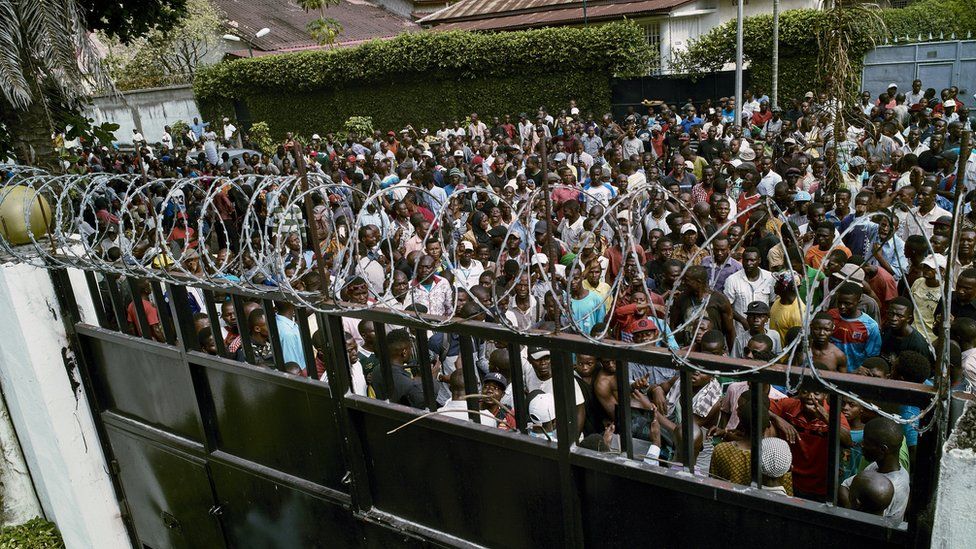DR Congo protests turn violent after power-sharing talks collapse
- Published

Police have fired tear gas and bullets to disperse opposition protesters in the Democratic Republic of Congo capital, Kinshasa.
The protests erupted when negotiations aimed at securing the departure of President Joseph Kabila after 17 years in power collapsed.
Religious leaders mediating the talks said politicians were acting selfishly.
The outline for a power-sharing deal in the country was agreed last year but the details have proved tricky.
Bishops who had mediated between the government and the opposition called off the talks because, they said, politicians had failed to agree on issues such as the choice of a transitional prime minister.
Announcing the bishops' withdrawal from the talks, the head of the National Episcopal Conference of Congo, Archbishop Marcelle Utembi, said the politicians had failed to "prioritise the interests of the nation".
Demonstrators angry at the collapse of talks with the government later gathered outside the house of Etienne Tshisekedi, the opposition figurehead who died last month and whose party has called on the outside world to stop recognising Mr Kabila as president.
The protests were followed by clashes with riot police and a number of people are reported to have been injured.
Mr Kaliba's mandate expired in December and the opposition has accused the government of sabotaging efforts to offer him a peaceful exit.
So far protests have been sporadic and police deployed in the capital have managed to control the crowds.
The main opposition Union for Democracy and Social Progress party has called on people to come out in Kinshasa for a "peaceful march" on 10 April "to resist the dictatorship taking root in our... country".
Why is Kabila still president?
President Kabila was supposed to step down by December last year, when his constitutionally limited time in office came to an end.
But the electoral commission failed to organise an election to choose a replacement, citing logistical and financial difficulties.
Roman Catholic leaders then brokered talks between the government and opposition parties and an outline deal was agreed right at the end of last year.
According to the deal, Mr Kabila was to lead a transitional government until elections due to be held by the end of 2017.
But the talks broke down over the make-up of the transitional government.
- Published2 February 2017
- Published19 December 2016